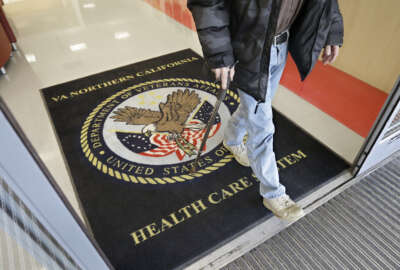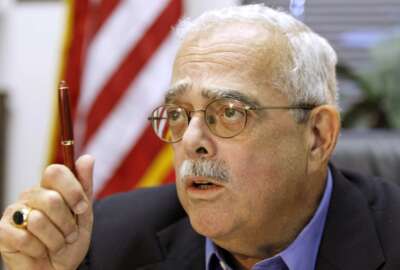
A new Congress doesn’t necessarily equal a new agenda
At least five bills have been reintroduced in the 116th Congress by incumbent lawmakers. And as the fog of last month's partial government shutdown clears, it's...
Almost two months into the new year and despite a slew of shutdown-related bills, many incumbent members of the 116th Congress have yet to give up on legislation from previous sessions. And the addition of more than 100 new members — including 10 new senators and 101 new representatives — hasn’t changed the playing field.
From federal retirement benefit upgrades to mitigating personnel bias and other issues, below is a list of bills lawmakers have reintroduced in 2019.
Equal COLA Act
Rep. Gerry Connolly (D-Va.) first introduced the Equal COLA Act in Nov. 2018 near the end of the 115th Congress. The proposed legislation is focused on bringing equality to the way cost of living adjustments are made under the Civil Service Retirement System and Federal Employees Retirement System. In essence, the bill would ensure any retiree under either system would receive the same annual living adjustment.
Currently, CSRS retirees receive a 2.8 percent COLA, where FERS retirees are capped at 2 percent. Only when annual COLAs fall below 2 percent are retirees paid the same.
If passed, the legislation would amend Title 5 within the U.S. Code created in 1986 by President Ronald Reagan.
In 2018, the bill was cosponsored by four lawmakers: Reps. Jamie Raskin (D-Md.), Donald Beyer (D-Va.), Zoe Lofgren (D-Calif.) and Del. Eleanor Holmes Norton (D-D.C.).
It was passed on to the House Committee on Oversight and Government Reform, where it stalled. Connolly reintroduced the bill on Feb. 15.
Rights for Transportation Security Officers Act
Related Stories
In short, according to the committee press release, the bill will:
- Enhance TSA’s security operations by applying the personnel system of Title 5 of the U.S. Code to the 44,000 Transportation Security Officers.
- Direct the Secretary of Homeland Security to consult with the labor organization certified by the Federal Labor Relations Authority on the plan and deadline to carry out the conversion of the workforce.
Protections include collective bargaining, whistleblower protections and protections against discrimination based on age or handicap.
It was referred to the Committee on Homeland Security’s subcommittee on Transportation and Protective Security, as well as the Committee on Oversight and Government Reform. No action has yet to be taken, and Thompson reintroduced the bill on Feb. 11
“Every day, Transportation Security Officers put their safety on the line to protect the flying
public,” the most recent bill states. “It is the sense of Congress that the Transportation Security Administration’s personnel system for the Transportation Security Officer workforce provides insufficient benefits and workplace protections to these frontline personnel who secure the United States aviation system, and that such personnel should be provided protections and benefits.”
So far the 2019 bill has only 18 co-sponsors and it sits in the same committees as the previous one.
VA Employee Fairness Act
Rep. Mark Takano (D-Calif.), along with 25 other lawmakers, introduced the VA Employee Fairness Act in February 2017. If passed, the bill would amend U.S. Code to modify authorities relating to the collective bargaining of employees within the Veterans Health Administration. In other words, it’s intended to create a better environment for attracting and retaining physicians, nurses and other healthcare workers.
In March 2017, it was referred to the House Veterans Affairs Committee’s economic opportunity subcommittee. The bill had 19 other cosponsors.
On Feb. 8, Takano reintroduced the bill. Sen. Sherrod Brown (D-Ohio) introduced a companion bill in the Senate. The 2019 House bill has 27 original co-sponsors.
“Veterans are provided the best quality and timely care when the VA workforce can thrive,” Mark Takano said in a press release. “With more than 40,000 employee vacancies in the VHA alone, it is crucial to ensure that doctors, nurses and other medical professionals are equipped with the best tools to retain and recruit the best talent to serve veterans — this bill will help make that possible.”
It has been referred to the House Veterans Affairs Committee.
Agriculture Research Integrity Act
Reps. Steny Hoyer (D-Md.) and Chellie Pingree (D-Maine) introduced in December 2018 the Agriculture Research Integrity Act. The bill would amend provisions in the Department of Agriculture Reorganization Act of 1994.
If passed, it would prevent the relocation, politicization and weakening of the federal agriculture research agencies. The bill would also reassign the Economic Research Service and National Institute for Food and Agriculture from the department’s undersecretary for research, education and economics to the main Office of the USDA Secretary.
In 2018, it was referred to the House Committee on Agriculture. The bill stalled in the House as the partial government shutdown overtook the floor. Hoyer and Pingree reintroduced the bill on Feb. 14. Twelve other representatives signed on as co-sponsors in 2019.
“The scientific research our food and farming system depends on shouldn’t be dictated by whoever’s in office at the time, nor should it be hollowed out when we need it the most. The proposed relocation and reorganization of the National Institute of Food and Agriculture and the Economic Research Service unnecessarily threaten the integrity and robustness of their critical work,” Pingree said in a press release. “My colleagues and I have repeatedly sent this message to the Secretary. Since he’s forging ahead regardless of our feedback — or the concerns of the nation’s agriculture research scientists — this bill is a necessary step.”
It was referred once again to the House Committee on Agriculture.
Fair RETIRE Act
Connolly introduced another bill in July 2017 that has made a comeback. The Fair RETIRE (Return for Employees on Their Initial Retirement Earned) Act was reintroduced on Feb. 14.
The bill aims to preserve special retirement benefits for certain members of law enforcement, firefighters, air traffic controllers, nuclear materials couriers and other diplomatic security agents who may not meet minimum age or service requirements due to work-related injuries or illnesses.
Copyright © 2024 Federal News Network. All rights reserved. This website is not intended for users located within the European Economic Area.
Steff Thomas is a digital editor at Federal News Network.






